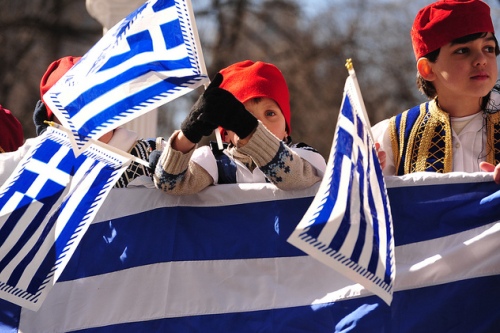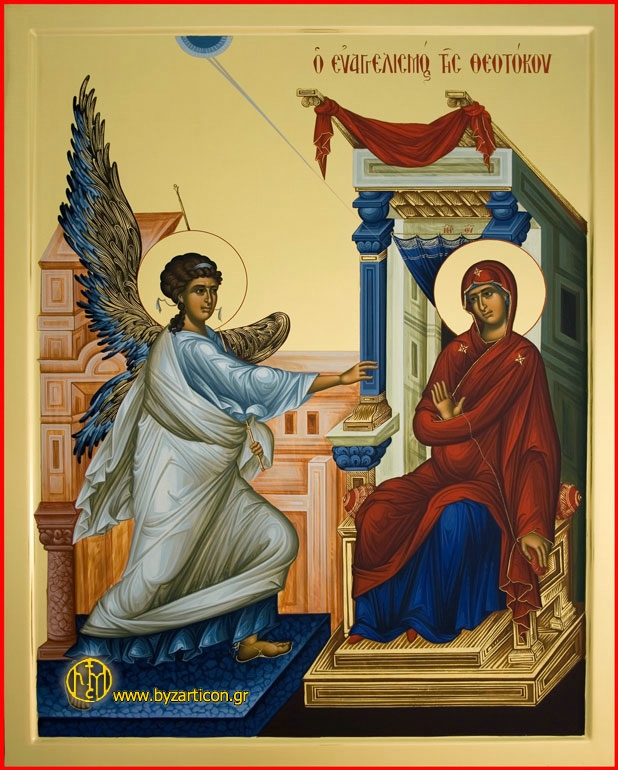On the eve of the holiday, white and blue flags are hung on the balconies, student parades are held in the cities and wreaths are laid at memorials.On the very day of the holiday, after the morning church service, large-scale military parades are held, the main one is on Syntagma Square in Athens. Due to the economic crisis, since 2011, the country's authorities have significantly reduced the number of participants in the parade and refused to allow the passage of military equipment. In the same year, the country's government, believing that Greece was already emerging from the crisis, and could afford to spend a couple of extra millions, decided to again "show" the face of military equipment. Also, for the first time since 2010, military aircraft are returning to the parade. 12 aircraft of the Air Force, 8 helicopters of the national army and 5 helicopters of the Navy are planned to participate.
Nevertheless, apparently fearing the reaction of the radical-minded part of the population, who considered the "way out of the crisis" to be a deceit and swindle, the country's leaders decided to hold a parade in 2 stages. On March 24, a festive parade of schoolchildren takes place, to which everyone is admitted, and a military parade will take place the next day on March 25th. At the same time, only those who have invitations from parade participants or official accreditations will be able to admire it "live". Apparently, the authorities still remember the facts of the not so distant 2011, when outraged residents of the city blocked the parade and literally drove the country's president, Carlos Papulas, from the stands. From early morning until the end of the events, the city center is tightly closed by police forces and the National Security Service, and the Syntagma metro station is closed to train stops.
Reference:
March 25 is a special day for all Greeks, as it combines two great holidays at once - the Annunciation and Independence Day of Greece. These two holidays have a closer connection with each other than it might seem at first glance. The very name "Annunciation" speaks for itself. It is symbolic that this day has become one of the main national holidays for the Greeks.
In 1821, it was on March 25 that the Metropolitan of the Greek city Patras- Herman - blessed the banner of the Greek national uprising against the Ottoman yoke. Then another 11 years of bloody struggle followed before Treaty of Constantinople approved Greece as an independent state. And yet, despite the fact that military happiness for the Greeks had its ups and downs, it is March 25th that is considered to be the starting point Greek independence.
The banner consecrated by Metropolitan Herman was a white cloth with a blue cross in the middle. It was soon adopted as official flag of Greece, and in this form it is still used by the Greek Navy. As for the rest of the country's structures, several decades ago they switched to a more familiar option for us today. Greek flag: nine white and blue stripes with a white cross in the upper left corner. According to the most common version, the nine stripes symbolize the nine syllables of the independence fighters' slogan: "Freedom or Death" (gr. E-lef-te-ri-ya and ta-na-tos), and the cross symbolizes Christianity as the state religion of Greece.
National heroes of the struggle for Greek independence considered clefts(literally - "thieves") - these are partisan detachments of an anarchic nature, which "descended from the mountains", inflicting sudden blows on the enemy army. It cannot be denied that subsequent generations, for educational purposes, significantly ennobled the two-faced appearance of the klefts, but the winners are not judged ... Perhaps the most prominent figure among this warlike tribe is the hereditary kleft Theodoros Kolokotronis, monuments to which can be found in almost all major cities of Greece.
Among modern Slavs, little is known about the fact that Russia and Ukraine are directly related to the preparation of the Greek uprising. After all, it was in Odessa that a secret society was founded Filiki Eteria(gr. "Society of Friends"), the purpose of which was the creation of an independent Greek state. Let's not pretend: the community mainly consisted of young people of Greek origin, but philhellenic heroes (Greek "friends of the Greeks") among the Slavic brothers are also known. Together with the native Greeks, they went on liberation operations, sometimes doomed to defeat, and shed their blood for the “Great Idea” - freedom and Greek independence.

Nowadays Annunciation and Independence Day in Greece celebrated very widely. Parades are held all over the country, schoolchildren prepare performances and performances on the Greek-Turkish theme, learn patriotic songs. According to the existing tradition, cod is eaten everywhere on this day (gr. bacaliaros). Everyone eats it, from young to old, but not even all Greeks remember why!

The fact is that this day ironically falls on the period of Great Lent when fasting people deny themselves not only meat, but also fish. But the Feast of the Annunciation (March 25, according to the new style) allows for a slight indulgence and allows the presence of fish on the Lenten table. The question remains why of all the fish it is cod ( bakaliaros) received such an honor? The answer is extremely simple: not everyone is lucky to live near the sea and have constant access to fresh fish - in some regions, fish had to be transported from afar. And of all the types of Mediterranean fish, it is cod that tolerates transportation and long-term storage outside the refrigerator in the best possible way, which has long made it an indispensable dish on this holiday.

Wishing March 25 in Greece dine with cod in a tavern, it’s better to come there early: the demand for this product is huge, and by 14:00 the waiter will most likely shrug in response to your question about cod - it’s over! The thing is that on this day, almost the only day during Lent, when it is allowed to eat
